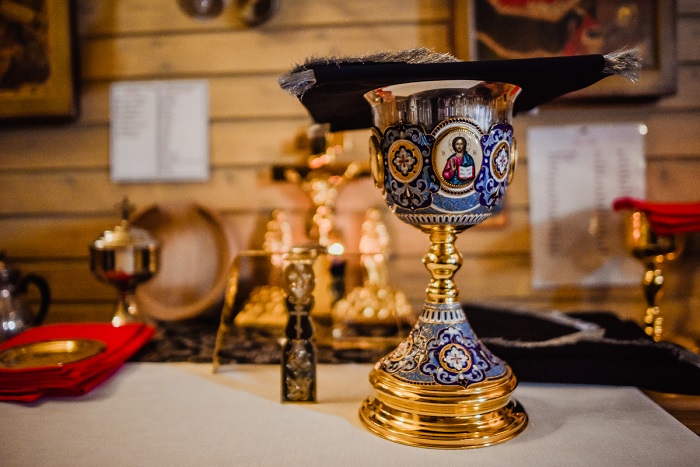A Study of Liturgics – May 5, 2019
Studying liturgical development from the first through the seventh century really is an interesting field of study. In doing so, one learns how our liturgies came to be what they are today. They were originally fairly small and simple. Yet, over the years more and more prayers were added – prayers for the departed, prayers for the Church, prayers for the people, prayers for the hierarchs and clergy, and the fleshing out of the actual liturgical prayers – giving more beauty, breadth, and depth to the liturgical practice and rhythm of the Church.
Each Bishop had a collection of notes and prayers that he would either add to or subtract from. When he reposed or was no longer the Bishop of the Church for whatever reason, the next Bishop would inherit these notes and do likewise. With the exception of the Liturgy of Saint James – though it is likely even that liturgy changed form over the centuries – there were very few formalized liturgies in use throughout Christendom. It was not until the fourth century that the Church was blessed with Liturgies such as that of Saint John Chrysostom and Saint Basil, or the Liturgy of Saint Gregory later in the seventh century. Many of these are still in use today.
Yet, there is one thing that rang true through the centuries, regardless of the liturgy in use, and that is the Laity never ever had a say in the liturgical praxis of the Church. Heck, the clergy did not even have a say in in. It was the Bishop, who did not exist as a Bishop without the Church, yet nor did the Church exist without the Bishop. He determined the Liturgy and liturgical practices, no one else. Those that refused to follow were considered in disobedience to their Bishop, obedience being a necessary precursor to humility. It is not the place of anyone else to determine the liturgical life and well being of the Church, or everyone then becomes their own Bishop, much like a particular Christian milieu that was lamented to have a million Popes. But, I digress….
Liturgical development, as well as Ecclesiology are two things I would like to dive more into when I am done with school. For now, I will keep writing essays on the world wars and such…..


:max_bytes(150000):strip_icc()/GoodFriday-157430484-5c7d8fe2c9e77c0001d19db3.jpg)